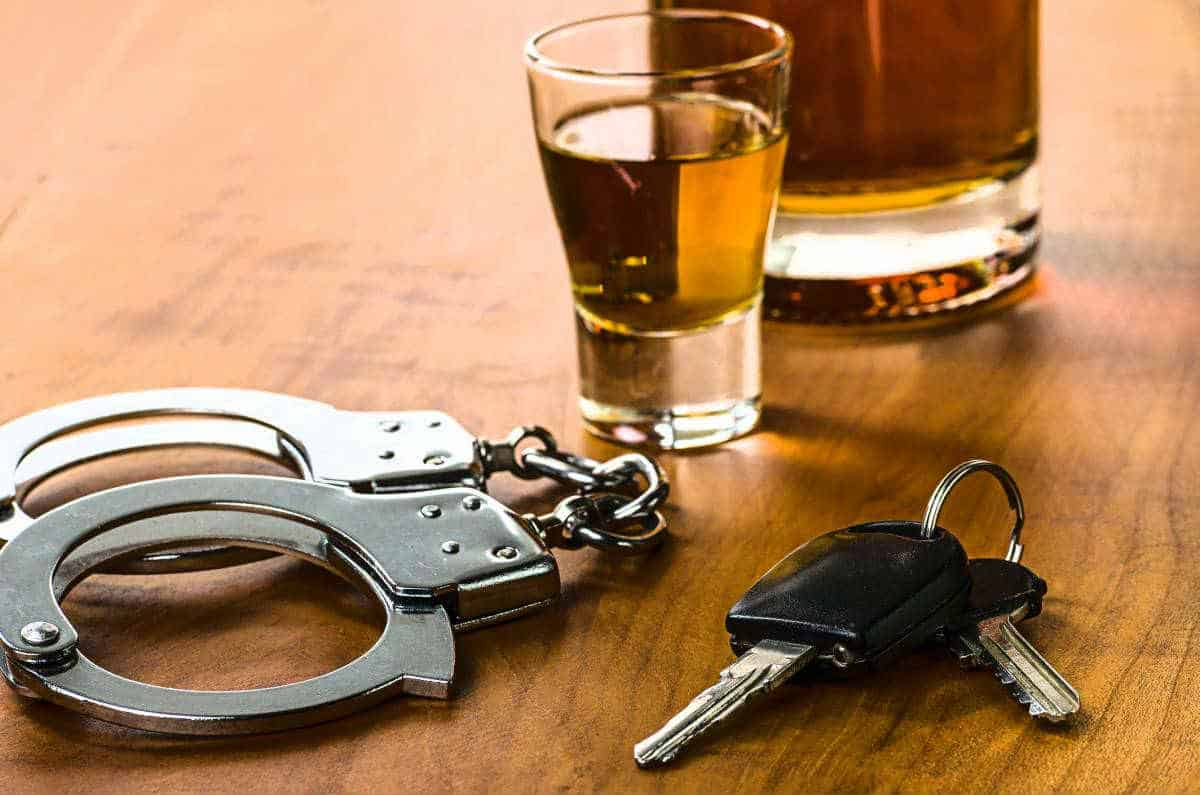There are many legal issues that surround a DUI car accident case in Chicago.
Though everyone is aware of the dangers of driving under the influence of alcohol, many people still operate their cars while intoxicated. This can give rise to many legal issues when a DUI accident occurs, from both the civil and criminal standpoint. In this article, we will discuss some of the key issues in DUI related car accidents.
Civil Liability for Damages Resulting from Alcohol Related Car Accidents
A drunk driver is almost always liable for any injuries or damage they cause while driving under the influence. Even in some no-fault states, there are exceptions that allow lawsuits for car accidents involving drunk drivers. Proving that the at-fault driver was drunk at the time of accident is not too difficult. Breathalyzers, field sobriety tests and blood tests are used to confirm the presence and amount of alcohol in the driver’s system at the time of crash.
A civil claim can have a devastating effect on the driver and can destroy his/her ability to obtain insurance and to drive, not to mention the financial implications that can leave the driver in a lot of turmoil. Moreover, victims of drunk drivers almost always file a lawsuit, and the liability is very easy to prove.
Criminal Liability for an Alcohol Related Car Accident Injury
In addition to civil liability, drunk drivers can also face criminal liability for the damages they caused. Car accident victims can bring vehicular manslaughter charges against drunk drivers. Even if there is no injury or property damage, drunk driving is still a crime and can result in forfeiture of driver’s vehicle, imprisonment, driver’s license penalties, and fines.
Criminal liability also extends to bars and restaurants that knowingly serve an intoxicated person and them allow them to drive. Even social hosts that offer alcohol to guests in their homes and knowingly allow them to drive can be held liable for the drunk driver’s actions.
In cases where minors drink and drive, adults who provide alcohol to them or allow them to drink in their homes can be held equally liable for the minor’s actions. In some states, there are laws in place that hold the homeowner liable if a minor was drinking in their home, regardless of whether or not they knew it was happening.
Effects on Auto Insurance
A drunk driving conviction can have a serious effect on a person’s ability to obtain auto insurance. Most insurance companies would not risk a high value claim or a potential lawsuit if the driver is convicted of driving when intoxicated. This affects not only the intoxicated driver, but the victims as well, because the victim will not have a financial recourse if he/she is injured by the drunk driver.
Why Do People Engage in Drunk Driving?
In spite of all the campaigns against drunk driving, it is still going on unabated. Even the recent ride share programs such as Uber have not been able to prevent this, and there are drunk drivers on Chicago roads each day of the year and at all times of the day.
When a driver is behind the wheel and drunk, he/she becomes a huge threat to public safety. The most effective way to prevent a drunk driving related accident is by preventing drunk drivers from getting behind the wheel. By eliminating their presence from the roads, we can ensure their safety and that of others on the road. A step in this direction is to understand why people drive drunk.
Why People Drink and Drive
When questioned, drivers disclose a number of reasons that led them to drink and drive, and some of the drivers did not even remember what caused them to drink and drive. Here are some common reasons given by drunk drivers who either confessed or were apprehended by police.
- Unaware of Impairment: A large number of drivers who were arrested by police claim that they were not even aware that they were impaired. A driver is considered impaired when he/she has a blood alcohol content of .08 or higher. This means, a driver can become impaired after having 2-3 drinks in an hour depending on several factors including age, weight, sex and others.
- Unavailability of transportation: Many drunk drivers claim that they had to drive while drunk, because they had no other means to get back home. However, this is a bad excuse, because in a city like Chicago there are city buses, taxi cabs, and various other means available to help you get around town. Calling a friend or using a designated driver is also a good idea.
- Disregard for Laws: Many drunk drivers get behind the wheel simply because they do not care about the laws. They do what they think is right for them without any consideration for the safety of others on the road.
- Poor judgment and decreased decision making skills: Alcohol can impair a driver’s cognitive abilities and affect their ability to make decisions and evaluate risks. When a person is drunk, he/she may not be able to decide whether or not they should be driving.
- Other Reasons: In some cases, drivers are so intoxicated that they do not even remember when they traveled or drove when drunk.
How Alcohol Affects Brain Function
A standard drink contains around 14 grams or 1.2 tablespoons of alcohol, says The National Institute on Alcohol Abuse and Alcoholism. No matter the amount of alcohol, any amount of alcohol can affect brain function. After you consume even a small drink, the chemicals in your brain stop working. As a result, the communication between different sections of the brain may be hampered. This may affect you in many ways. For example, you may experience the following symptoms:
- difficulty in decision making
- difficulty in controlling impulses
- lack of balance
- slow reaction time
- ignoring consequences
You may also experience problems with your eyesight. For instance, you may not be able to see any object in clear focus or may have a problem with depth perception. Some people may have a false sense of confidence after consuming one or two drinks. They may mistakenly think that they are okay to drive. But the fact remains that driving with even a slight buzz could be dangerous. Buzzed drivers are likely to experience poor eye-hand coordination and slow response time. This increases the risk of getting involved in a car accident.
Drivers Underestimate the Risks of Buzzed Drinking
Drunk or buzzed driving accounts for around 170,000 car accidents that cause minor injuries and 10,000 car accidents that cause fatal injuries in the United States every year, according to a report by the National Transportation Safety Board. This represents nearly 30 percent of automobile-related fatalities, says the report. Every year, more than 200 children aged 14 or below get injured from accidents caused by intoxicated driving. When someone drives under the influence of alcohol, he or she puts many other people’s lives at risk. Despite the prevalence of accidents caused by drunk driving, many drivers are seemingly unaware of the risks associated with driving under the influence of alcohol. Nearly 30 million licensed drivers admit that they have driven under the influence of alcohol.
5 Ways DUI Car Accidents Can Be Prevented
This means, every day, 27 people are killed in drunk driving crashes. About a third of all traffic fatalities can be attributed to drunk driving. In 2012 alone, more than 10,000 people were killed in accidents caused by alcohol impaired drivers. DUI accidents cost over $35 billion annually to American citizens.
The Tragedies of Drunk Driving
Driving under the influence affects the response time of the driver to an extent that the chances of an accident become very high. DUI car accidents often have serious consequences, causing injuries to thousands of people and killing many of them. In order to prevent car accidents caused by DUI, authorities and citizens should come together to make our roads safer. Here are some things that both authorities and citizens can do to prevent DUI-related injuries and fatalities.
Police Presence and Sobriety Check Points
The presence of police or other authorities may help reduce DUI accidents. Whenever people know that there are police officers around, they behave differently. Drivers who have to much to drink are more likely to call for a cab or get a ride rather than risking getting caught and facing a penalty. A police presence becomes even more important during the holiday season when more people are likely to drink and drive. Sobriety check points have shown to be effective in controlling DUI accidents in some communities. These checkpoints randomly stop drivers and check them for sobriety.
Teen Education
A large number of DUI accidents involve a teen driver. By educating teen drivers about the risks of DUI and the penalties involved, many accidents may be prevented. Teen drivers that learn safe driving habits early on are more likely to become responsible drivers as they grow up.
Ignition Locks
These locks are connected to the car’s ignition and check the driver’s blood alcohol content before the car can be started. Even when the driver is allowed to start the vehicle, he or she must blow into the equipment regularly to verify sobriety.
Be a Responsible Citizen
Citizens can play a huge role in curbing the menace of DUI. Make sure you get a ride or call a cab when you are drunk, even if you have to drive only a few blocks. When hosting a party at home, make sure not to allow anyone who is drunk to drive home. Get a sober driver to drive them home safely.
Are Designated Driver Programs Really Effective?
Despite strict drunk driving laws in Illinois, approximately 320 people lost their lives in 2013 as a result of road accidents caused by driving under the influence of alcohol, according to the Illinois DUI Fact Book published in 2015 by the Secretary of States. Drunk driving accounts for a significant percentage of fatal accidents in Illinois every year.
How Effective are Designated Driver Programs?
Social awareness organizations have made an attempt to prevent or at least reduce the prevalence of impaired driving through designated driver programs. However, over the years, many questions have been raised about the effectiveness of these programs. A designated driver is a person who chooses not to consume alcohol for the evening so that he/she can drive his companions home safely. This means that a designated driver program allows a person to reach home safely after drinking alcohol, without having to drive his car. Although the idea of a designated driving program is quite convincing, the program has failed to live up to the expectations, according to a recent report on alcohol and drugs published in the Journal of Studies.
Researches at the University of Florida conducted a study to try and reveal the real picture. The researchers interviewed many designated drivers among the people leaving bars, and requested that they take a breath alcohol test to measure their Blood Alcohol Concentration (BAC). Interestingly, approximately 50% of the 165 respondents were found to be over the legal limit. Of the designated drivers who were found to be under the influence of alcohol, less than 20% had a BAC of less than 0.02 percent, while another 20% had a BAC of more than 0.05 percent. This means that the designated drivers interviewed by the researchers at the University of Florida had much less amount of alcohol than a legally drunk person in Illinois would consume. However, this does not mean they were in a state to drive safely. In fact, driving after even a single drink could lead to an accident because even a small amount of alcohol may lower one’s ability to react quickly, according to the Illinois DUI Fact Book.
In the state of Illinois, it is illegal to drive with a BAC of .08 or above. A person with a BAC of 0.06 is two times more likely to get into an accident. In comparison, a driver with a BAC of 0.08 in 11 times more likely to be involved in a car accident.
Ways To Spot a Drunk Driver on the Road
Impaired drivers often cause the most serious accidents; in spite of strict laws and various organizations that work towards reducing drunk driving, it still goes on unabated. Even though there is nothing you can do about the behavior of other drivers, you can be a vigilant driver, learn the signs of a drunk driver, and act accordingly to prevent an accident.
Signs That Could Indicate the Driver is Impaired
There are some obvious signs of a drunk driver including swerving and weaving in and out of traffic. A drunk driver may come close to colliding with another vehicle and may continue to drive even after a collision. In addition, other signs to look out for include:
- wrong way driving
- driving too fast or too slow
- driving without headlights at night
- sudden acceleration or deceleration
- taking wide turns
- tailgating
- drifting from lane to lane
- erratic braking
Avoid a Car Accident with a Drunk Driver
There are certain things you should never do when you find yourself sharing the road with an impaired driver. First and foremost, do not enter into an altercation with the driver. Even if the driver is exhibiting dangerous behavior or is speeding, do not follow the vehicle. If possible, note down the license plate number and call the police. Maintain a safe distance and do not try to get in front of the vehicle.
Keep in mind that an impaired driver has a tendency to drive towards the object that they are looking at. If your car is the only thing that is in clear view of an impaired driver, he or she will drive towards you, increasing the chances of a collision. If the drunk driver ends up causing a crash, do not try to argue with the driver. Call and get help for anyone who has been injured in the accident.
7 Things to Do If You Are Involved in a Drunk Driving Accident
Driving under the influence accounts for around 7% of car accidents that occur each year in the United States. Statistics also show that approximately 31% of all fatal traffic accidents occur because of alcohol. The accidents caused by driving under the influence of alcohol are often serious and cause severe injuries and even fatalities. Immediately seek help from a Chicago car accident attorney from Willens & Baez if you are involved in a Chicago DUI car accident.
DUI Car Accidents
A car accident that involves a drunk driver can involve high medical fees, expensive vehicle repairs, as well as other expenses caused by the accident. An attorney who is experienced in handling DUI cases can help pursue a car accident claim against the driver at fault and recover the damages that will cover the costs resulting from the accident. Even though cases of DUI are pretty straightforward and the issue of liability may be clear, we will make sure all of your losses are accounted for when seeking compensation, including:
- medical expenses
- property damage and loss
- vehicle repair
- pain and suffering
What To Do After a DUI Car Accident
After you have been involved in a drunk driving accident, there are a few things you should do:
- Ensure your personal safety.
- Ensure the safety of other persons involved in the accident.
- Get medical attention.
- Call 911.
Reporting a DUI Car Accident
It is important to report the accident, especially if it involves DUI. This official report can be used later as evidence of intoxication. Such evidence can help you prove your claim and get the compensation that you deserve. When emergency services reach the accident site, report all of your injuries, irrespective of how minor they seem.
Here are some steps to take after a DUI accident:
- Obtain the names and contact information of other people involved in the accident. This includes drivers, passengers, and witnesses.
- If possible, take photos of the accident site. Capture the road conditions in your photos and take pictures of all vehicles involved in the accident. Any photos you take can be used as evidence in your claim.
- Contact an experienced Chicago car accident attorney as soon as possible!
Sobriety Tests Reduce DUI Fatalities
Driving under the influence (DUI) of alcohol is a huge problem that plagues our society. Statistics gathered by various organizations clearly indicate the seriousness and the severity of the problem, and even though efforts have been made to reduce DUI cases, the problem continues to surface with deadly outcomes.
DUI Statistics
According to the Centers for Disease Control and Prevention (CDC), nearly a third of all automobile accident deaths are caused by drunk drivers.
- Drunk driving causes one death every fifty minutes according to Mothers Against Drunk Driving.
- It is estimated by the Pacific Institute for Research and Evaluation that drunk drivers cost the country more than $132 billion on a yearly basis.
- The lead physician of the University of Michigan Health System estimates that a drunk driver will make about 80 trips under the influence of alcohol before he or she is either caught by the police or is involved in an accident.
Reducing Drunk Driving – Ignition Interlock Device
How can the number of DUI cases be reduced? Law enforcement and health professionals are looking for a proactive approach to curb this problem. Suggestions have been made to include sobriety tests as a mandatory component in all new cars. Ignition interlock devices are installed in a car to test the driver’s blood alcohol content (BAC). The device uses an infrared beam that checks the breath or fingertips of the driver. These sobriety tests can check if the blood alcohol content is more than 0.08, and if it is, the car will not start. Experts estimate that installing such a device has the potential of reducing alcohol-related deaths by about 85 percent.
Ignition interlock devices are available only to DUI offenders. Installing existing devices or creating a new device for monitoring DUI cases and phasing out older cars that do not have the devices is estimated to take more than 15 years. The American Journal of Public Health estimates that these tests can help save about $340 billion in drunk driving injury-related costs. In addition, 59,000 fatalities and 1.25 million non-fatal injuries can be averted with sobriety screening systems.
Contact a Chicago Car Accident Lawyer
At Willens & Baez, we focus exclusively on representing individuals and their families who were injured by someone else’s negligence. We know that getting hit by a drunk driver has the potential to take over a person’s life, making it difficult to move forward. Our award-winning team of attorneys and staff want to help people take control of their situation so they can focus on what matters most — getting back on track.
Contact our Chicago office today at (312) 957-4166 or fill out our online contact form.
Save
Save












